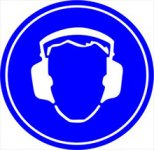AlexThePalex
Member
- Joined
- Nov 12, 2008
- Messages
- 7,808
Huxleywood said:Finally, please share your documentation of why you are convinced using the ROS I tested can damage hearing when used in a normal manner ie not holding it against your ears.
What exactly is a normal manner? Because I think you completely misinterpret how test results translate to using a sander in practice.
During work, you move the sander around in many different position, nobody only works with a sander at arms length on a table. Many times when people use a sander, or any other power tool, the tool comes very close to the head and then noise levels increase beyond the safe limit. How exactly do you sand a vertical surface of a house when you stand on a ladder? Where's your "safe" distance? And what exactly is the influence of the surface you work on on the sound level? Put your sander on a cabinet and you've got this whole sound box vibrating with your tool, amplifying it like a guitar amplifies its strings.
Furthermore, it's nonsense to just say there's ONE limit of 80 decibel because your hearing is not consistent over the entire range of frequencies, the extremities on the high (20.000 hz) and low (20 hz) end will be damaged much quicker than the middle. Different frequencies carry a different amount of energy.
As for documentation, anybody in the industry, be it tool manufacturers or safety regulators, recommend using hearing protection with power tools, all the time. They do not recommend this because they want you to look cool.
Besides that, maybe you should think about how those safety regulations work exactly. They are not meant to protect you 100% absolutely, because in that case any safety regulator and sound researcher would advice you to stay away from loud noises at all time.
Your hearing has evolved over millions of years, and nature simply doesn't work on a 80 decibel/8 hours per day exposure basis, only human machine parks do, which only came to life in the last 200 years. Maybe you don't realise this if you grew up in an urban environment, but nature is actually very quiet out there, and your hearing is optimally tuned to function in such an environment, listening to the minute sound a prey or predator might make, and not an environment with machines blasting in your ears 8 hours a day.
Those rules are meant to find a BALANCE between the necessity of noisy production sites and people's long term safety. Right now noisy production environments are an economic necessity because that's just how machines work, they do good stuff but they make a heck of a lot noise, which is not good. You can't get rid of them because that would mean going back to the stone age. So we have to find a level where we can still operate those machines without losing hearing right away. That doesn't mean you're 100% safe over the long term and can simply do anything you want.

